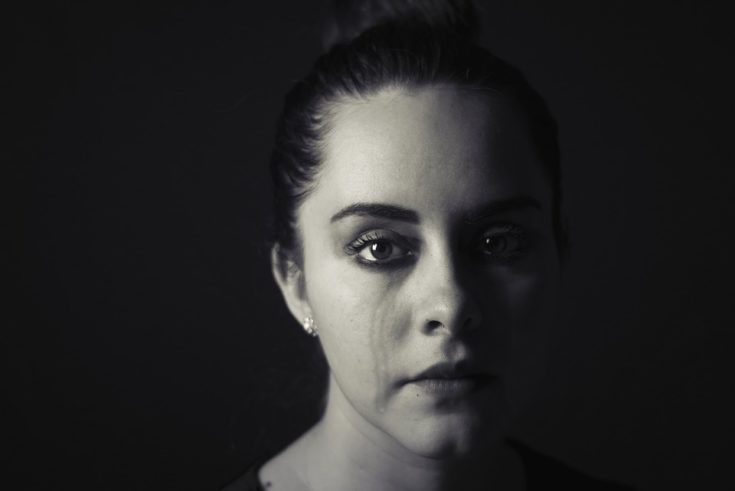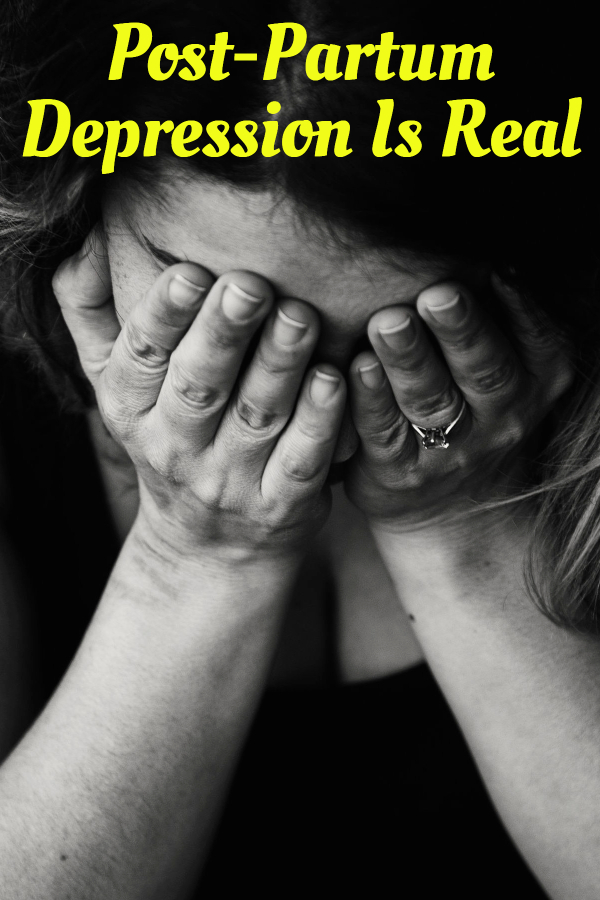Disclosure: This post may contain affiliate links, meaning we get a commission if you decide to make a purchase through our links, at no cost to you. Please read our disclosure for more info.
Women have an overall higher risk of developing depression in their lifetime than men do; this is in part because certain life stages cause hormonal changes that can trigger depression. One of these is pregnancy, and while many women are focusing on getting as healthy as they can to prepare for carrying and giving birth to a child, there are some things that can’t be predicted.

Women who are pregnant can develop depression during or after pregnancy, with symptoms ranging from mild to severe.
Hormone Fluctuation that Triggers Mood Changes
Up to 80% of women have mild symptoms of depression after they give birth, but for most, the symptoms last only a few days. This mild, transient depression is commonly called the baby blues, and it’s caused by the very rapid hormonal changes that occur after giving birth. When someone becomes pregnant, the body starts to produce greater quantities of hormones such as estrogen and progesterone, but right after birth levels of those hormones drop. The change is so rapid that it takes a few days for the body to adjust, and the baby blues are the result: mild feelings of depression, often accompanied by anxiety and irritability. In most cases, these symptoms last only a few days, or a week at the most. For some women, however, the baby blues may trigger a more serious depression that lasts for weeks or even months. This is called post-natal or postpartum depression, and may include strong feelings of depression, guilt, shame, or anxiety, with additional symptoms such as severe fatigue, insomnia, and even suicidal thoughts. Women who develop post-natal depression sometimes find it difficult to bond with their new baby, or find it difficult to cope with caring for the baby, and as a result may view themselves as bad or uncaring mothers.
Around 20% of women who are affected by the baby blues develop post-natal depression. While the hormonal changes are typically the main trigger for post-natal depression, it’s thought that there may be contributing factors. For example, women who have a history of depression, or who are experiencing problems in other areas of life, such as in relationships, work, or finances, may have an increased risk of developing post-natal depression.
[amazon_link asins=’0738216933,0470073357′ template=’CopyOf-ProductGrid’ store=’preemietwinswp-20′ marketplace=’US’ link_id=’4bd381d6-7a53-4fef-8151-6e56329b6b8f’]
When is Treatment Needed?
The baby blues are an absolutely normal part of giving birth, but these symptoms should last no longer than a week, or two weeks at the most. If a woman should experience symptoms of depression for longer than a couple of weeks after giving birth, she should seek treatment, or at least talk to her doctor.
Treatment for post-natal depression is similar to that for any other kind of depression, with therapy and perhaps medication the most common recommendations. For women who choose to breastfeed, the options for medication are somewhat limited, but there are several anti-depressants that are considered safe for breastfeeding women to use. In fact, doctors typically recommend that women who are breastfeeding don’t stop if they need to use anti-depressant medication, because of the benefits that breastfeeding has for the new baby. Remember that if you’re experiencing post-natal depression, it’s your right to choose whatever treatment you feel comfortable with, whether or not that includes medication. Recovery is different for everyone; for some women, support from family and friends, along with therapy and self-care, is enough to beat the depression. For other women, therapy and support alone are not enough, and the only way through the depression is to use medication.
[amazon_link asins=’1533319081,1548007226′ template=’CopyOf-ProductGrid’ store=’preemietwinswp-20′ marketplace=’US’ link_id=’5e97ea67-99a4-4277-b5f8-7e7d30e18f77′]
There’s always a lot of pressure on pregnant and new mothers to enjoy pregnancy and new motherhood—it’s commonly described as one of the most wonderful experiences a woman can have—and this pressure can exacerbate the feelings of guilt and shame that women feel when they are affected by post-natal depression. The fact is, everyone’s experiences of pregnancy and parenthood are different, and there’s no right way to feel about it. It’s normal to have anxious and even negative thoughts, and it’s important to understand that there’s no need to feel guilt or shame over having those thoughts.
References
- Adam Slevin (2007). “Breastfeeding with Postpartum Depression.” Accessed February 5, 2015.
- Katherine Stone. “Postpartum Depression Support Orgnizations.” Accessed February 5, 2015.
- Jan Oystein Berle and Olav Spigset (2011). “Anti-depressant Use During Breastfeeding.” In Current Women’s Health Review Feb; 7(1): 28-32. Accessed February 5, 2015.
- Office on Women’s Health. “Depression during and after pregnancy fact sheet.” Accessed February 5, 2015.

